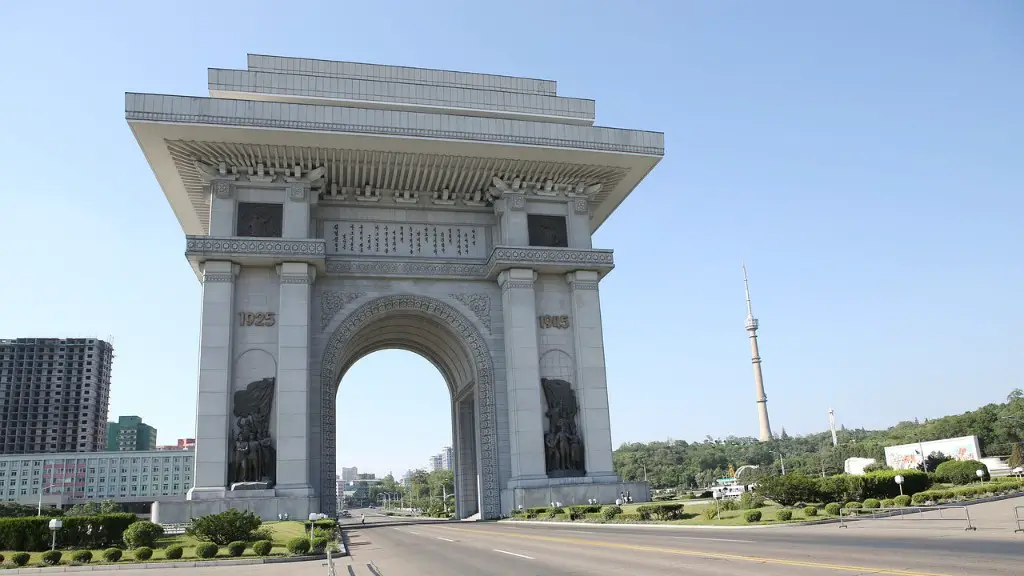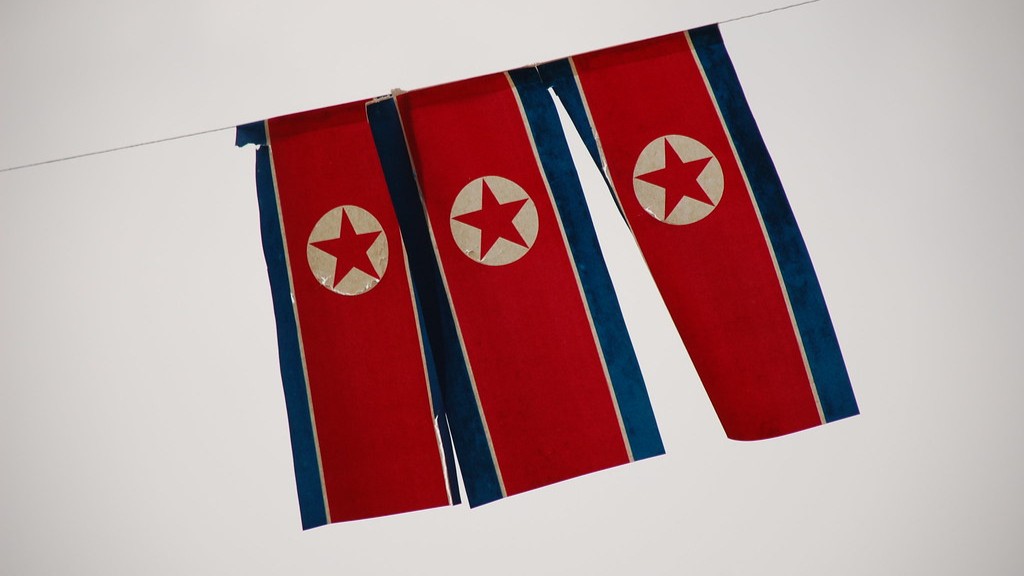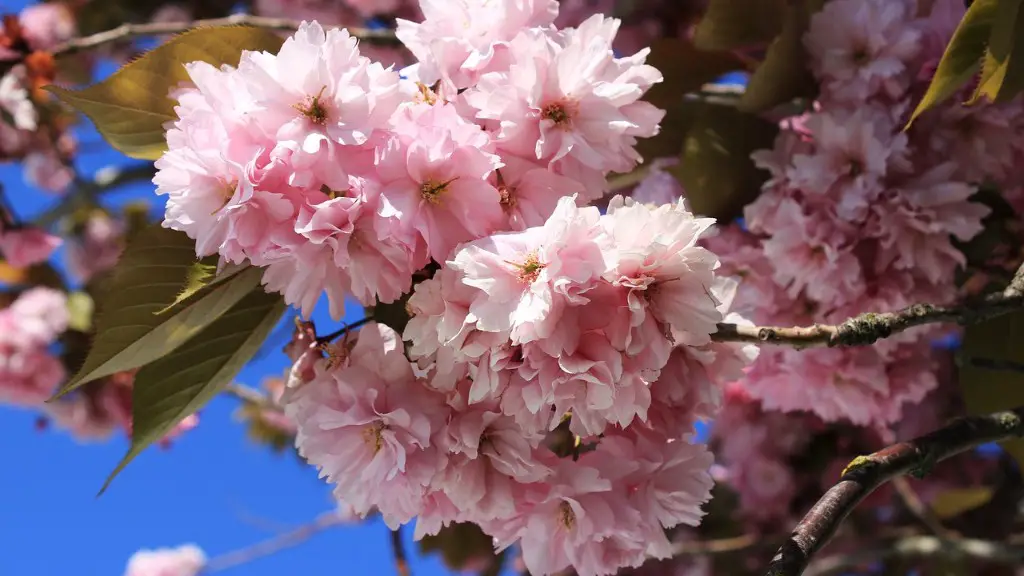Background Information
North Korea is a country isolated from the world. It is located in East Asia and borders Russia and China. The country is run by a ruthless dictator and the supreme leader, Kim Jong Un. Kim Jong Un has held absolute power since 2011 and has been running the country with an iron fist, with little to no room for compromise. North Korea is considered to be a closed-off nation, and a host of international sanctions have been put in place in an effort to curb the nation’s human rights abuses. The nation is impoverished and has one of the lowest levels of freedom in the world.
Economics and Infrastructure
The North Korean economy is a centrally planned one, where the government has the authority to make most decisions in regards to the nation’s budget. This results in North Korea having one of the weakest economies in the world. The nation’s resources such as minerals, oil and manufactured goods are scarce, and their production is heavily reliant on imports from its neighbouring countries. Additionally, the lack of foreign investment means that economic progress is slow.
Infrastructure too, is weak in North Korea, with the nation having one of the lowest percentages of paved roads in comparison with other countries. Despite having huge hydropower potential due to its hilly terrain, a lack of technology and resources has meant that the nation’s electricity supply is unstable at best. North Korea also lacks internet access and its citizens are blocked from accessing foreign media.
Economy and Life
The North Korean economy is heavily state-run and highly centralized. The government controls nearly 80 percent of the economy and sets prices for the rest of the economy. This has left the majority of North Korean citizens in an economically desperate situation. Most North Koreans are subsistence farmers who rely on their own plots of land for food. Those who can, engage in self-employment or seasonal jobs in order to pay for basic necessities.
Many North Koreans suffer from under-nutrition and hunger, due to the country’s poor economic conditions. A lack of food is further compounded by the nation’s military spending and its structure of social classes. This results in poverty and the lack of educational and health care facilities, leaving the citizens with limited options for survival.
Politics and Society
North Korea is a totalitarian state and has a strict unified rule. The government heavily controls the people, monitoring their movements and access to information. North Koreans are subject to harsh punishments, including political prison camps, for actions deemed as adversaries of the state. Majority of the citizens live in fear of the government and punishments.
The media is state-controlled and press freedom is non-existent. Propaganda praising the government is broadcasted on news outlets as well as in schools. Internet access and foreign media are banned, further preventing citizens from getting access to uncensored news from other countries.
North Korean Relations with the World
North Korea does not have formal diplomatic relations with the majority of the world. Its relations with the US and other western countries is strained, due to the nation’s nuclear program and its aggressive foreign policy. China is the main ally of North Korea, and it has established strong economic ties with the nation. Much of North Korea’s diplomatic outreach and economic assistance is from China.
North Korea’s foreign policy is aggressive and prone to making threats towards the US and other countries, further complicating its relations with the world. North Korea’s approach to international affairs is one of defiance, and it has often refused to negotiate with the international community.
Politics of Succession
North Korean politics of succession is a complicated, secretive and unpredictable matter. Since 2013, the question of who will succeed Kim Jong Un has been a hot topic of discussion. There are a few members of the Kim family that have the potential to take over from Kim Jong Un, such as his sister Kim Yo Jong. His brother Kim Jong Chul was recently removed from power after reportedly attempting a coup.
The lack of information and instability surrounding the succession makes it hard to determine who might be the eventual successor of Kim Jong Un. The situation is further complicated by the political landscape of the nation, with a lack of defined laws and regulations.
The Impact of Sanctions
North Korea is a nation that has been subject to numerous international sanctions. The US and its allies have imposed these sanctions in an effort to pressure the government to stop its aggressive foreign policy and its nuclear program. These sanctions have crippled North Korea’s economy and have resulted in the nation facing harsher living conditions.
The sanctions have also resulted in food shortages, a decrease in international aid, limits to exports and higher prices of basic necessities. This has further strained the economy and the nation’s resources, and has made the situation for an average North Korean worker much worse.
Cultural Life
Despite the political tensions and economic sanctions in North Korea, the nation does have glimpses of a vibrant culture. Music and literature are present in North Korea and the nation boasts of a number of architectural landmarks. The nation also has a number of festivals to unwind and observe.
The lack of foreign influence makes North Korea’s culture very unique and authentic. Though the public cannot access foreign media and the internet, North Koreans have embraced a form of culture that is solely theirs. The North Korean culture has its own values and ways of life, and it is has become a point of resilience for the people of North Korea.
Impact of China
China has had a huge influence on North Korea, both economically and politically. China has been supplying the nation with subsidies, oil, agricultural products and other resources. This has kept the North Korean economy afloat and has allowed the nation to develop its infrastructure and maintain its nuclear program.
The Chinese government has also been involved in North Korean domestic affairs and is currently mediating the peace talks between North Korea and the US. Furthermore, China is the biggest advocate of North Korea on the world stage and provides the nation with international protection from the United Nations.
US Policy of Isolation
The US has imposed a policy of isolation on North Korea, refusing to engage in diplomatic negotiations or sessions with the nation. The US believes that North Korea cannot be trusted and that the nation is a threat to its security. Thus, the US has been reluctant to ease sanctions or negotiate over the North Korean nuclear program and its aggressive foreign policy.
The US foreign policy results in a hostile relationship between the two nations, and further contributes to the nation’s isolation. This makes the possibilities of North Korea becoming a part of the global community much more unlikely.
Security Threats
North Korea is considered to be one of the biggest security threats in the world. It has often invaded or threatened South Korea and its nuclear program poses a threat to its neighbours. Additionally, the nation’s extensive ballistic missile program and its aggressive foreign policy make it a cause for concern. The US has called for the complete denuclearization of North Korea, but the nation has constantly refused to comply.
The US and its allies have set up sanctions and international regulations in an effort to curb the security threats posed by North Korea. However, the nation has refused to comply with these regulations, leaving the international community baffled and uncertain.


